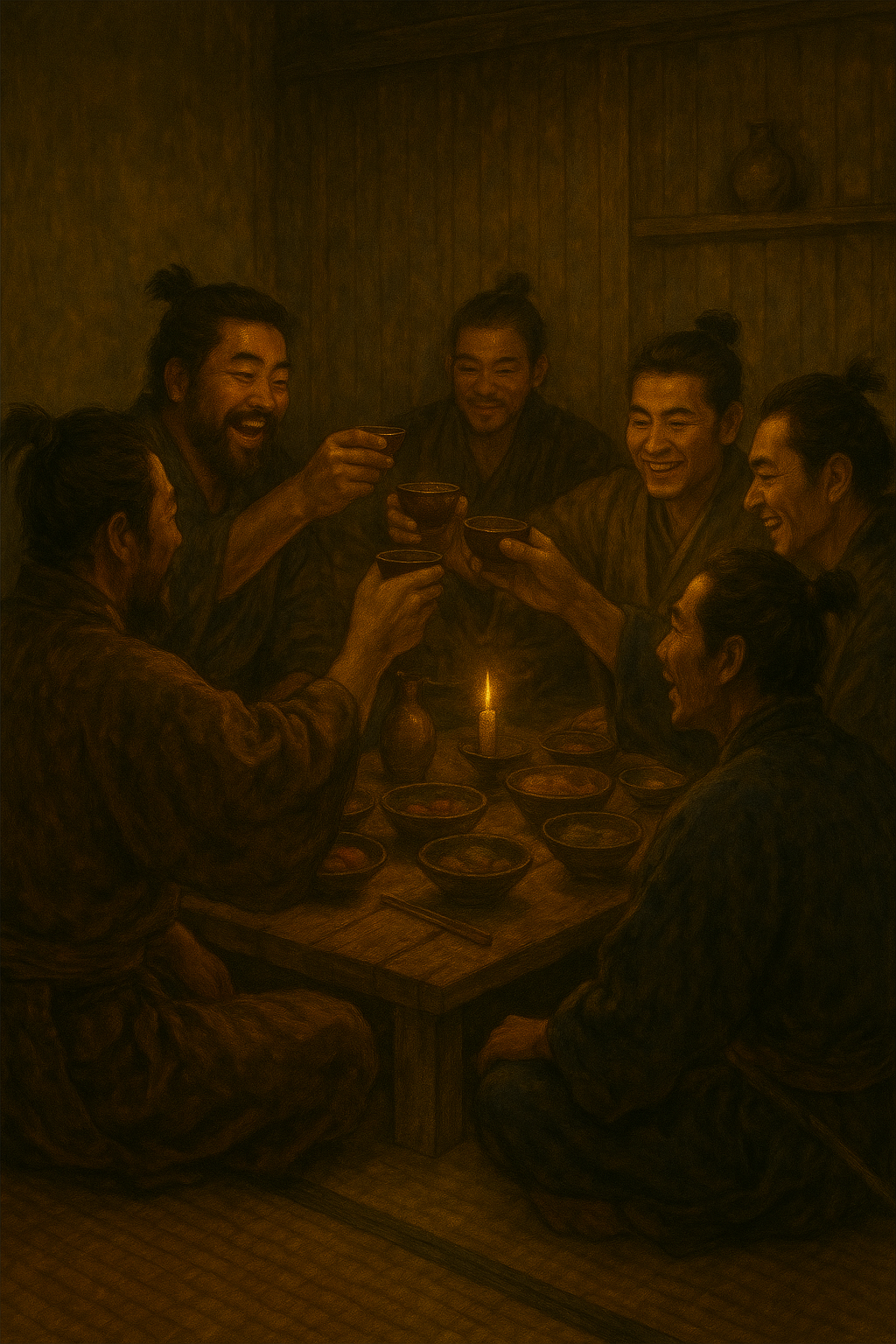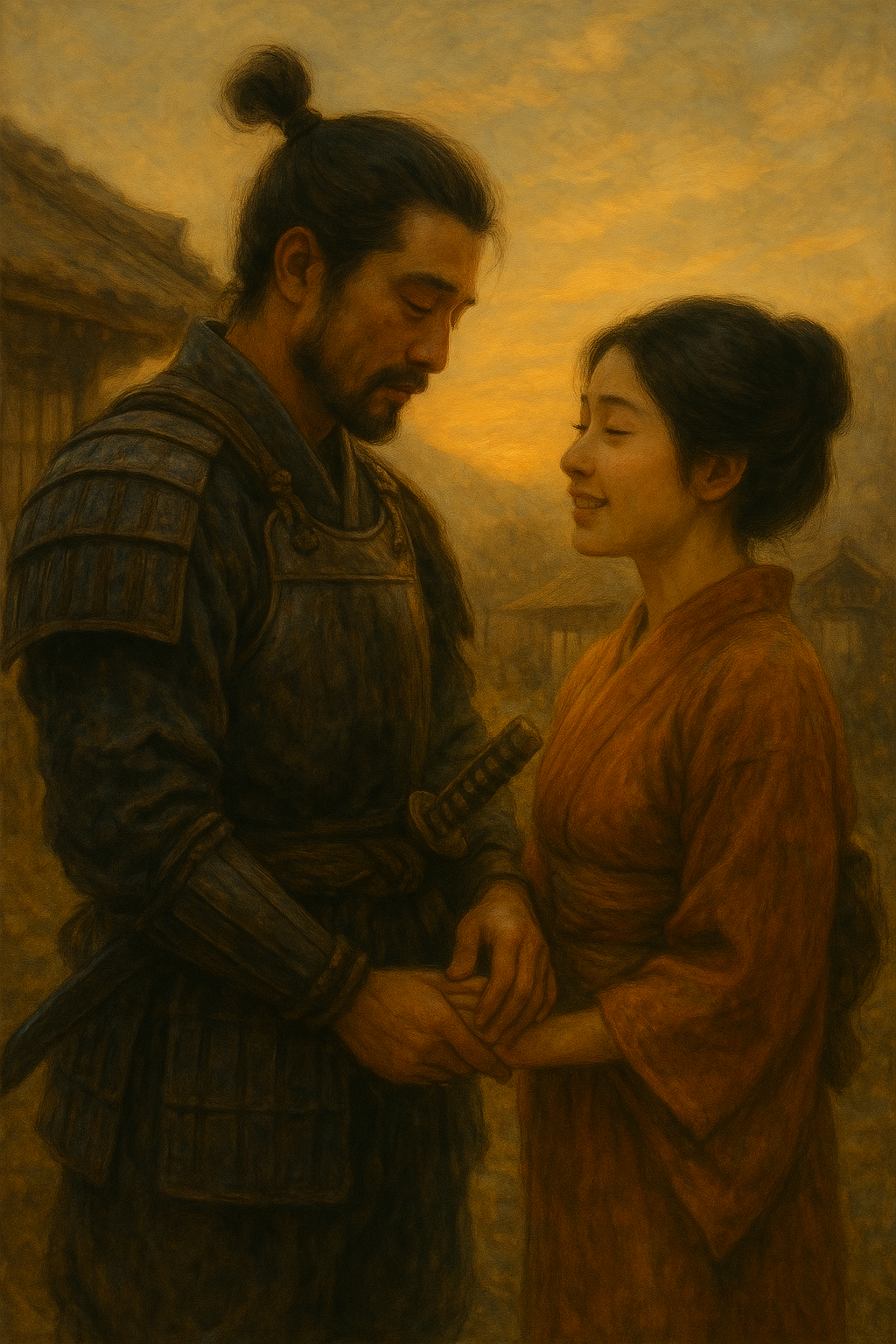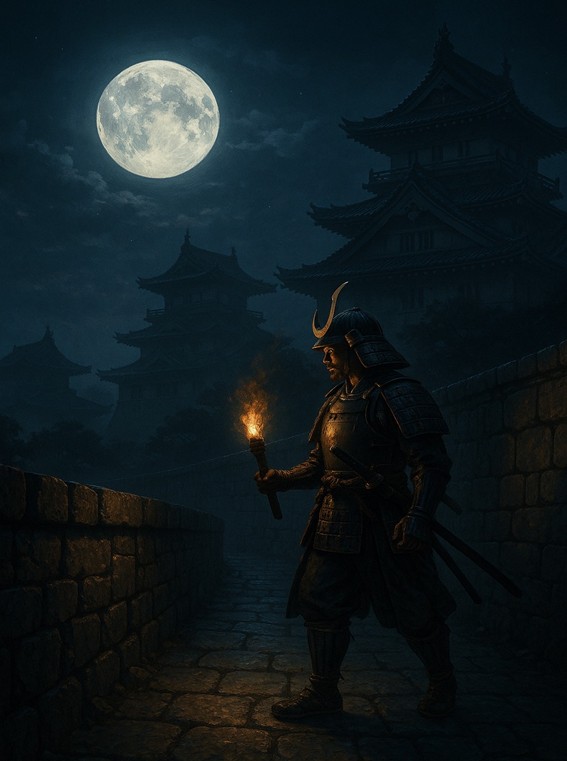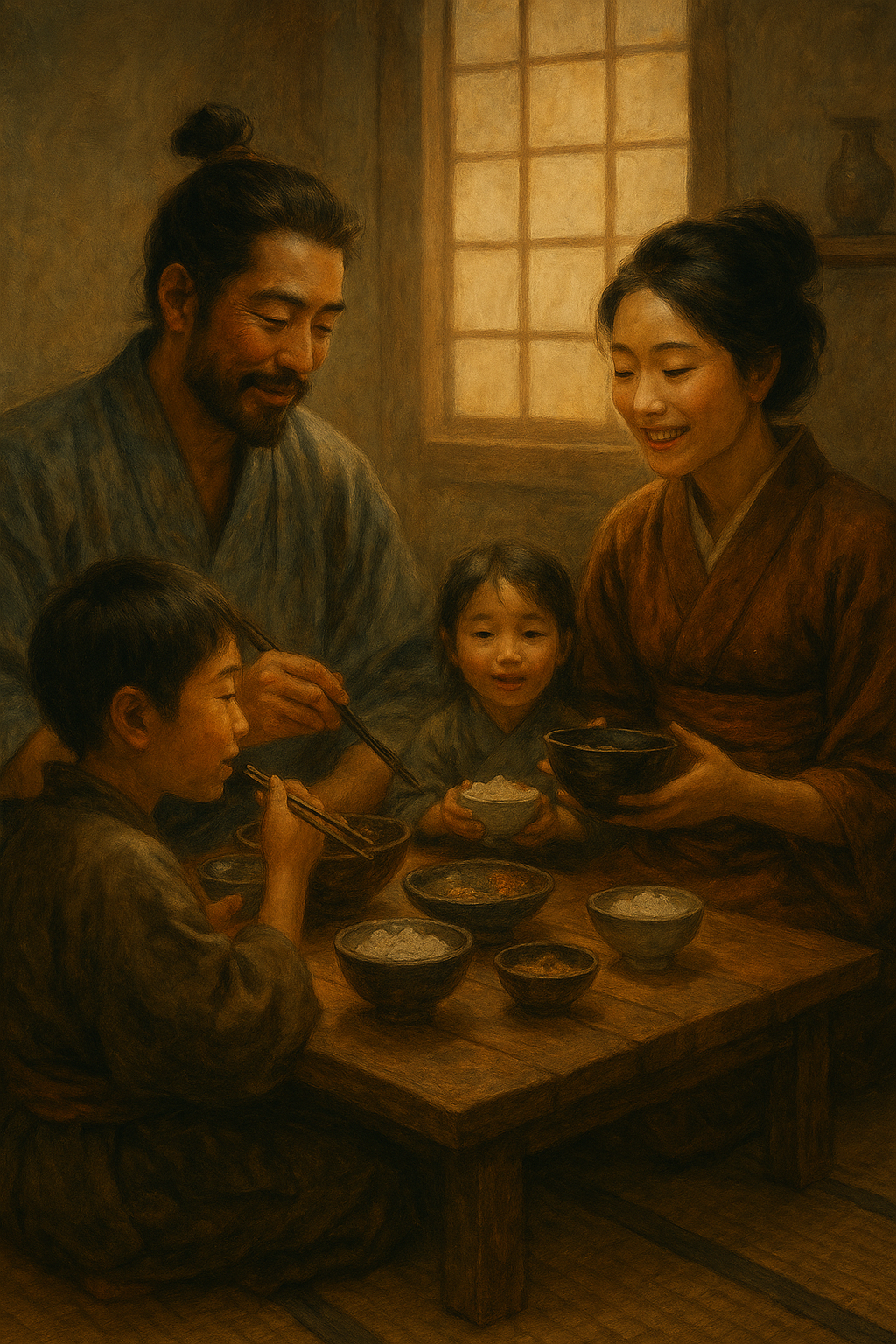January 11, 1573. Around 8 p.m. The wind howled outside, a bitter reminder of the deep winter that had settled over Mino Province. But inside this small, candlelit room, the cold was banished by the warmth of sake and camaraderie.
My name is Haru, a minor vassal to Lord Oda Nobunaga. This evening, five of us—warriors who had served together for years—gathered to celebrate a rare moment of peace. The harvest was secure, and a temporary truce had been called with our neighbors. Feasting was a vital part of a samurai’s life, a way to build bonds and release the tension of constant conflict. We called this gathering a “utage,” a small banquet.
The room was simple, its only decoration a humble scroll in the tokonoma (a small alcove) and the faint scent of charcoal from the hibachi. We sat on the tatami floor around a low table, each of us with a small lacquer bowl of rice, a bowl of miso soup, and some pickled vegetables. It was not a grand feast, but it was a celebration of survival.
My hand reached for the sakazuki, a small, delicate cup for sake. As tradition dictates, I first filled the cup of the man to my right, Masashi, before he filled mine. This simple gesture of pouring for one another was a symbol of trust and respect, a silent acknowledgment of the brotherhood forged on the battlefield. The sake was warm, its smooth heat spreading through my chest.
“To a bountiful harvest!” Masashi laughed, raising his cup.
“And to surviving the last skirmish!” another warrior, Kenji, added, his face lighting up in the flickering candlelight.
We toasted, the small cups clicking together in a sound of quiet triumph. We spoke of our families, of the rice paddies, and even of our swords, treating them not just as weapons but as family heirlooms passed down through generations. The conversation was filled with laughter, the kind that only comes after the shadow of death has receded.
The formal rules of the banquet were subtle. We spoke in turn, listening with respect, and made sure not to drink alone. This was not a place for loud boasting, but for genuine connection. The hierarchy was still present—our group leader sat at the head of the table—but in this private moment, it was softened by the shared experience of war.
As the night wore on, the warmth of the sake and our shared stories filled the room. This was what we fought for, not for territory or titles, but for these simple, precious moments of humanity. For the chance to sit with friends, to laugh, and to feel the peaceful warmth of a quiet home, if only for a night.
I took a final sip of sake, feeling the warmth spread to my fingertips. Outside, the wind still raged, a constant reminder of the world beyond our sanctuary. But for now, here, we were safe.



